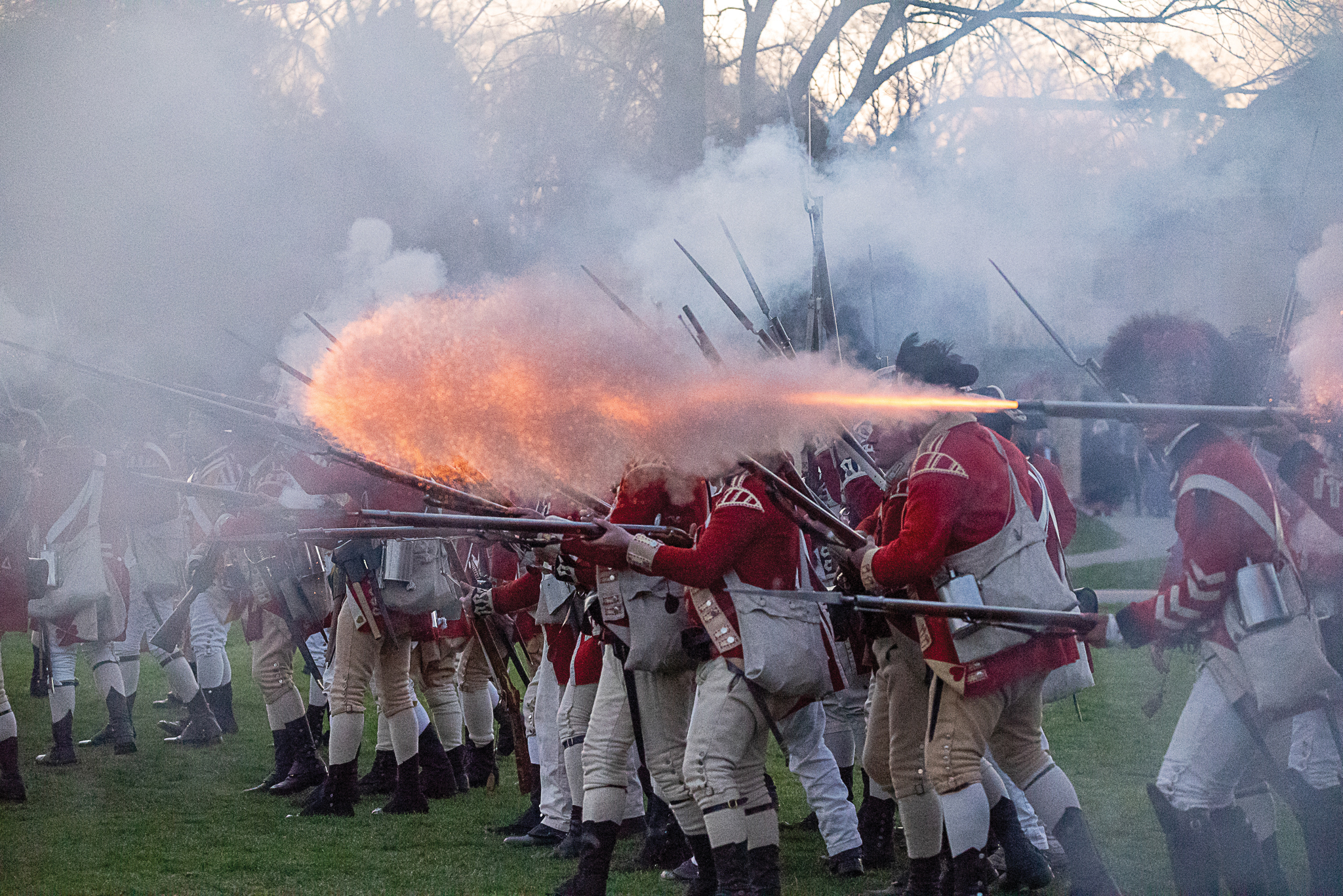The American Revolution began outside the bustling streets of Boston in Lexington and Concord. These quiet towns, each roughly 20 miles to the city’s west, were the site of the first battles of the Revolution, a pivotal moment in American history that ultimately led to the birth of our free nation and the Commonwealth we experience in the current day.
At dawn on April 19, 1775, approximately 700 British soldiers arrived in Lexington, where they encountered a group of only 77 colonial militiamen assembled on the town green under the command of Captain John Parker. Though outnumbered and facing a superior force, Parker famously instructed his men, “Stand your ground. Don’t fire unless fired upon. But if they mean to have a war, let it begin here”.
What happened next remains unclear, except for this: a shot was fired, triggering a brief exchange of gunfire. British soldiers quickly overpowered the colonial forces, resulting in eight militiamen killed and several more wounded, before the British continued their march toward Concord. This initial skirmish, widely regarded as the start of the American Revolution, has been immortalized as “the shot heard ’round the world,” a phrase later popularized by poet Ralph Waldo Emerson.
When the British reached Concord, they discovered that much of the colonial ammunition they had intended to seize had been relocated in anticipation of their arrival, thanks to warnings spread by Paul Revere, Dr. Samuel Prescott, and other riders. A contingent of colonial militiamen awaited the British at the North Bridge in Concord, larger than what met the British in their previous stop. The colonists successfully defended the bridge, forcing the British to retreat.
During the British retreat to Boston, colonial militiamen employed guerrilla tactics, firing from behind trees, stone walls, and homes along the route. By the time the fighting stopped, the British had suffered 73 men killed and many more wounded, compared to the colonial militiamen’s loss of 49 men killed.
These battles demonstrated the resolve of the colonial forces and foreshadowed the long and grueling conflict that would unfold in the struggle for American independence. The early encounters between the British and colonial militias did more than ignite armed conflict—they symbolized the colonists’ determination and courage, sparking a revolutionary fervor throughout the Thirteen Colonies.
Today, when people think of Massachusetts, they often picture Boston—the Red Sox, famous seafood, and the Boston Marathon—but the state’s legacy as a birthplace of the nation’s liberty is marked by the shots fired and revolutionary spirit which was on display in the towns of Lexington and Concord in 1775.
For Massachusetts, these battles are more than just historical markers; they embody the spirit of resistance, bravery, and the relentless pursuit of freedom that continues to define the Commonwealth today. As Massachusetts approaches the 250th anniversary of the American Revolution, this milestone is a reminder to reflect on the profound impact of these historic sites and to honor the values that fueled the quest for independence—a legacy that still resonates in modern times.







